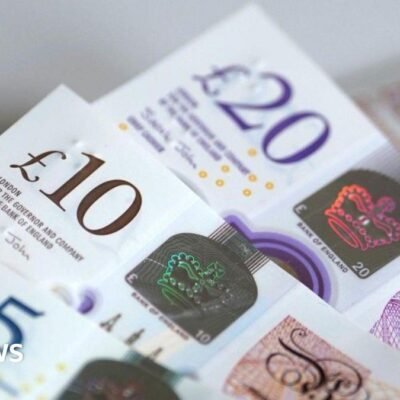Keeping yourself and your money safe from scams can be a struggle. A user online has revealed the two things they do differently to protect themselves from fraud and scams – and it’s simple.
Protecting your money from fraudsters can feel like a never-ending battle. With increasingly sophisticated scams operating online, over the phone, through the post, and face-to-face, it’s all too easy to become a victim.
While there’s plenty of advice available for safeguarding yourself and your finances, according to one Reddit user, the most effective methods are remarkably straightforward. A user posted on the platform claiming to work in the fraud department of a major bank, inviting questions from fellow users, reports the Manchester Evening News.
The most popular question asked was: “What things do you do differently than an average person to protect yourself from fraud?”
The user responded: “As boring as it sounds my main ones are this: if you’re in the UK, NEVER pay for anything via bank transfer unless you are physically with the item and about to take it away. No matter how small the item is or the cost.
“If customers fully trust the seller and go ahead, it’s on them. But I personally would never pay for anything via bank transfer.
“And when paying via card online I only buy on genuine padlocked official sites like Amazon, Ebay or Apple ect. Never anywhere else. Oh and if I do buy something through PayPal I never select the friends and family option, even if the seller tells you to for convenience ect.”
One curious user queried: “What is the most common type of fraud?”, to which the expert responded: “If we are talking customers scamming, then customers who sell items that don’t exist and keep the money. Or lie about fraud to get free money from the bank.
“Or if we are talking customers who got frauded/scammed, unrecognised card fraud usually or when they send money for an item and don’t receive it, or they are tricked into sending money thinking it’s their bank and get scammed (usually elderly people fall for it). Those scam call centres man!”
When probed for more details, they elaborated: “Say you sell a TV on Facebook market place for example, knowing you don’t have a TV to sell or aren’t actually selling one. You advertise it, someone reaches out and agrees to buy it.
“You give them your account details and then they pay you via bank transfer for you to post it. Then after, you block or ghost them and don’t send them the TV.
“So then they complain to their bank, who reaches out to your bank to accuse you of scamming their customer. If you’re found to be scamming, your bank may close your account and blacklist you (or more extreme put a CIFAS on your credit file practically banning you from getting credit or a bank account else where for 6 years).
“Banks take scamming seriously. A lot of young kids are tricked into receiving money into their account through Snapchat and Telegram this way and are told to withdraw it out or send it elsewhere through things like Crypto where it is hard to trace (and promised high returns for doing so, or to keep a portion of the money). Then they get their account shut down.”
CIFAS operates as the UK’s anti-fraud database.
If you suspect fraud, contact your bank immediately upon discovering it. Cases can also be reported to Action Fraud round the clock at https://reporting.actionfraud.police.uk/login or by ringing 0300 123 2040 from 8am to 8pm, Monday through Friday.






